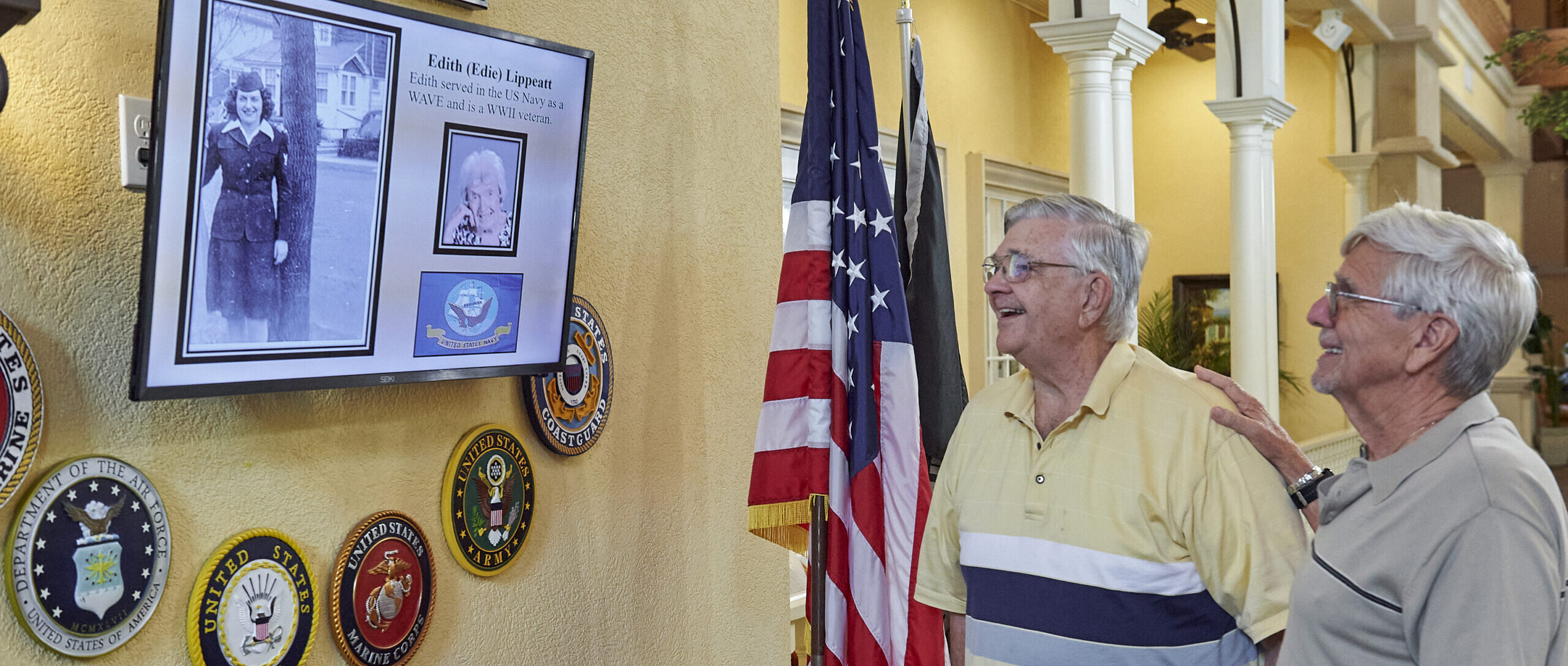How to Engage Other Family to Reduce Primary Caregiver Burnout

Beth lives on Florida’s west coast with her husband and two teenage children along with her elderly parents. Juggling all the caregiver duties and responsibilities in the home is stressful, but Beth believes she’s doing a good job.Still, she worries about caregiver burnout and wonders how long she can continue being her parents’ primary caregiver before becoming overwhelmed. While she doesn’t like the idea of burdening others with caregiver responsibilities, she’d love to ask some family and friends for help. If this situation sounds familiar, know you’re not alone. More than a quarter of American adults are caring for aging parents. And it’s mostly women providing the care with no outside help. Caregiver duties include handling finances, medication management, grocery shopping and preparing meals, coordinating medical appointments, transportation and everyday chores.
Caring for elderly parents takes a village of helpers.
Mom and Dad spent decades caring for you, and now your ultimate wish is for them to age gracefully as they live out their golden years. But you can’t do it alone — you’ll only jeopardize your own health and wellness and make it more challenging to provide care to your loved ones.That’s why adult children need to understand being an elderly caregiver is a family affair, and caregiver responsibilities shouldn’t fall solely on one member. A primary caregiver must enlist the help of others, and not feel embarrassed or guilty about it. Recognizing when you need assistance is an essential part of taking on a primary caregiver role.When it comes to identifying potential helpers, don’t rule anyone out. You never know how someone can lighten your caregiving load and become a valuable member of your village of caregivers. A support team may include spouses, teenage children, siblings, other relatives, friends, neighbors or members of a congregation.
Checklist for caregiver duties and responsibilities
Once you have a caregiving team in place, it’s time to figure out what they can do to help. Most people are happy to lend a hand; they’re just not sure how or when. Start by creating a comprehensive list of tasks and dividing them into categories such as transportation, household duties and meals.For example, the transportation list may include driving Mom or Dad to medical and beauty appointments, grocery store, pharmacy or shopping mall. Household tasks may consist of laundry, pet and plant care, house cleaning, small handyman tasks, picking up and sorting mail, and caring for the lawn. For meals, you may include shopping for and unloading groceries, and meal planning, preparation and delivery.Families can use online resources such as Google Sheets, takethemmeal.com and lotsahelpinghands.com to coordinate care circles, assign or sign up for tasks and stay organized. Caringbridge.org allows you to create a web page with health updates, journal entries, photos and messages of support.
Tips for engaging family and friends in caregiver responsibilities
Communicate clearly
While most people are sincere in their intent to lift some of your caregiver burdens, you should be explicit about your needs. Let your caregiver helpers know precisely how and when they can pitch in. The more specific you are, the more likely others will understand what needs to be done and how they can assist.Also, keep in mind some family members and friends might be new to caregiving and will need extra guidance and instruction. Some fill-in caregivers are less confident than others, so sharing little details can offer them reassurance and helps ensure things run more smoothly.Here are a few examples:1. If cousin Barb is coming over to help Mom get dressed, leave an outfit laid out for her so she doesn’t have to look for what she needs or worry about what fits.2. Don’t just ask neighbors to “make a meal.” Instead, be specific about what you’d like them to do: “I’d really appreciate it if you could make Dad’s favorite meatloaf for dinner next Tuesday. Here’s the recipe.”3. If your teenage son volunteers to drive Grandma to her doctor’s visit, be sure he has all the appointment details, and knows how to safely get her in and out of the car.4. If Bob from church offers to come over and visit with your parents for the day, be sure he knows what medications they’ll need to take and when.
Divvy up tasks by matching talent to needs
Equally dividing up caregiving duties isn’t always realistic, because it doesn’t take into account everyone’s experience and availability. When asking for help, keep in mind that some people won’t be comfortable with doing everything. Also, be sure to respect everyone’s task or time limitations. One person may only be available once a month, while another is interested in cooking and cleaning, but not hands-on care. Ask for volunteers or assign duties based on interest or skill set. One person can handle mail, bills and finances, one can manage medications and health appointments, and another can shop for groceries and coordinate meals.It’s best to give everyone a job, even if it’s small. For example, an uncle who lives in another state can be responsible for calling or video conferencing with Mom and Dad once a week or helping maintain the care calendar. A friend from church might not be able to assist with household chores physically, but she can sit and chat with your parents and play cards with them.
Appreciate what others offer
Family and friends might be less likely to step in and help if they think you have everything under control. Perhaps some of them have wanted to lend a hand, but didn’t offer because they didn’t want to seem like they were interfering.When you’re a primary caregiver who takes on nearly all the responsibilities, you might feel no one can do the job as well as you do. And that’s ok. You’re not looking for a primary caregiver replacement, nor do you expect (or want) someone to do as much as you do. You want others to help make your life a little easier. So give up a bit of control and let them contribute any way they can. Instead of judging family members or friends for their limitations, it’s best to appreciate them for whatever they can offer.
Take a break from caregiver duties and responsibilities
When you need relief and want to avoid caregiver burnout, respite care is a win-win option for both you and your loved one. At Freedom Village of Bradenton, we offer short-term respite stays, where Mom and Dad will receive the highest level of care. They’ll also have access to all the person-centered services in our senior living community, while you take a much-deserved break and attend to your own needs.If being the primary caregiver for your aging parents becomes too much for you to handle or if they need more support than you can provide, it might be time to transition them to a community that offers higher levels of care.
Whether you need short-term care through our respite services or are ready to have your parents move into senior living and receive round-the-clock care, Freedom Village of Bradenton provides everything you need. Check out our assisted living services.




